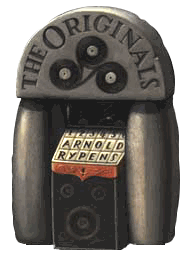BARBARA ALLEN
Created on 03/11/2005Latest update on 01/11/2023
Artist: Clara Butt
Author: traditional
Label: His Master's Voice
Year: 1910
The Vera Lynn of World War One.
Covers:
- 1927:
- 1928:
- 1933:
John Jacob Niles [as The Ballad Of Barberry Allen]
- 1933:
Moses Platt [Lomax recording]
- 1936:
Rebecca Tarwater [Charles Seeger recording]
- 1940:
Rebecca King Jones [Anne & Frank Warner recording]
- 1941:
- 1946:
- 1947:
- 1949:
- 1951:
- 1951:
- 1953:
Sarah Makem [Tommy Makem's mother]
- 1954:
- 1958:
- 1959:
- 1959:
- 1961:
- 1961:
Jean Ritchie [a cappella]
- 1962:
Bob Dylan [8 minute version on Live At The Gaslight; "Without Barbara Allen there'd be no Girl From The North Country"]
- 1963:
- 1966:
- 1967:
- 1973:
- 1976:
- 1988:
- 1994:
- 2000:
- 2000:
- 2001:
Emmy Rossum [in film Songcatcher]
- 2001:
Emmylou Harris [idem]
- 2001:
- 2004:
John Travolta [in film A Love Song For Bobby Long]
- 2005:
Mary Humphreys & Anahata [as Barbrie Ellen; lyrics copied from a 1923 version by William Pittaway from Oxfordshire, collected by Cecil Sharp; on cd Song Links 2]
- 2005:
Cassie Franklin & Southern Brew [American version on cd Song Links 2]
- 2008:
- 2011:
- 2013:
Song collecting pioneer Samuel Pepys mentioned this murder ballad in his diary in 1666. It was also the favorite melody of Nell Gwyn, king Charles II's favorite. Abraham Lincoln sang it as a child. Song #84 in the Child collection. Model for the ballad form in secondary schools in England and the US. "Hard-hearted Barbara Allen" is buried right next of her "sweet William". A rose and a briar grow out of each of their bosoms and what seemed impossible during both of their lifetimes is accomplished post mortem: they get entwined in a true love's knot. But what this song really advocates is "thou shalt not have pleasure", the dominant Protestant puritan ethic of pious pioneer women punishing their men in the only way they fully controlled.


